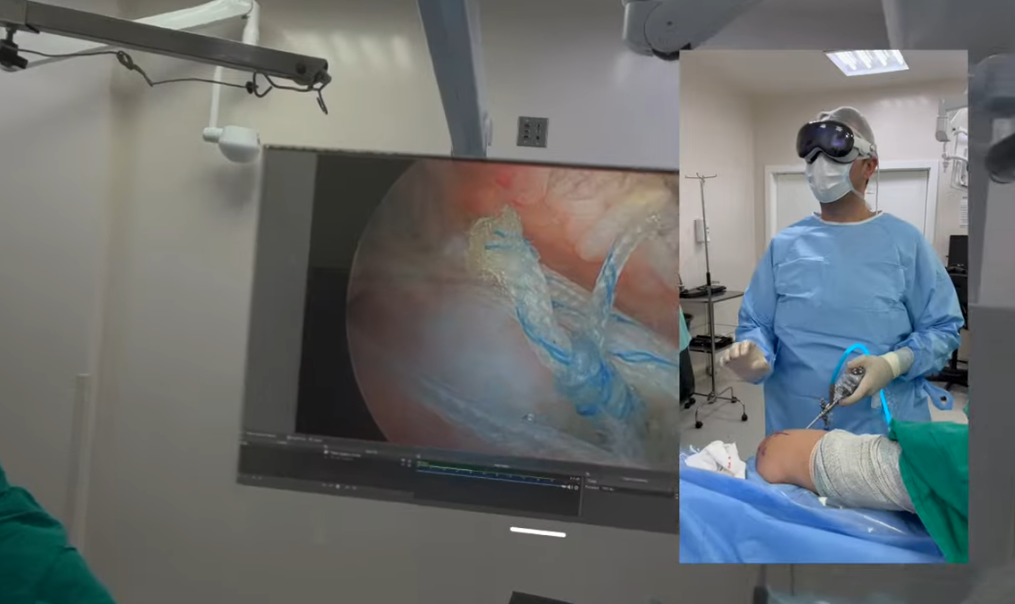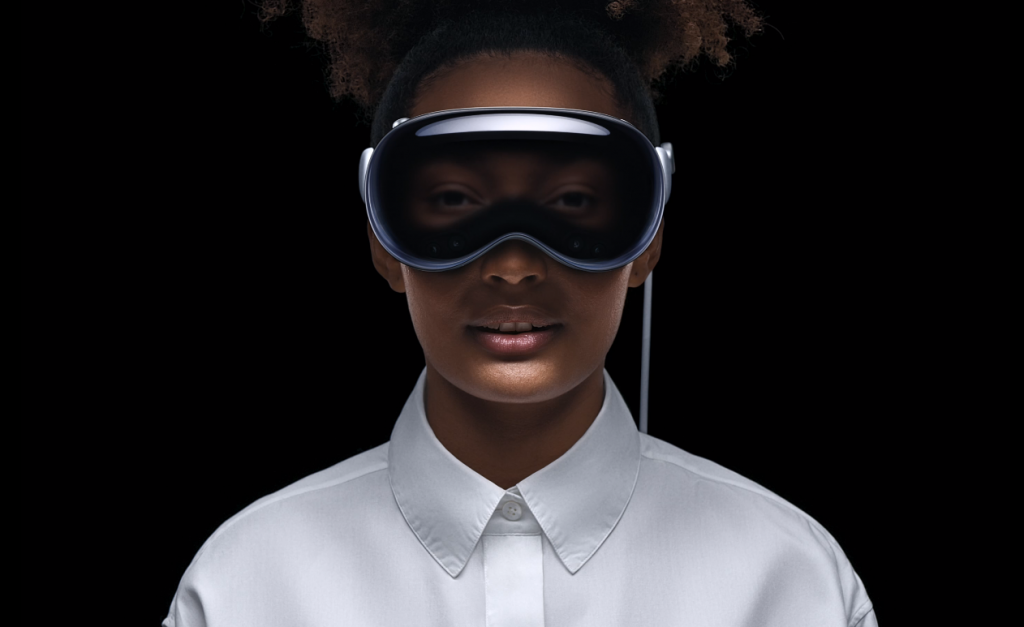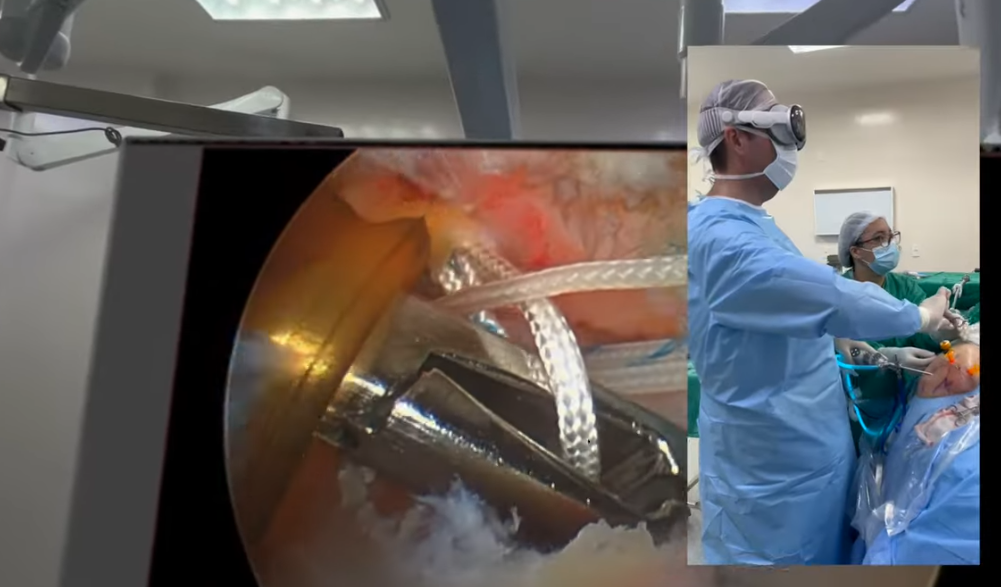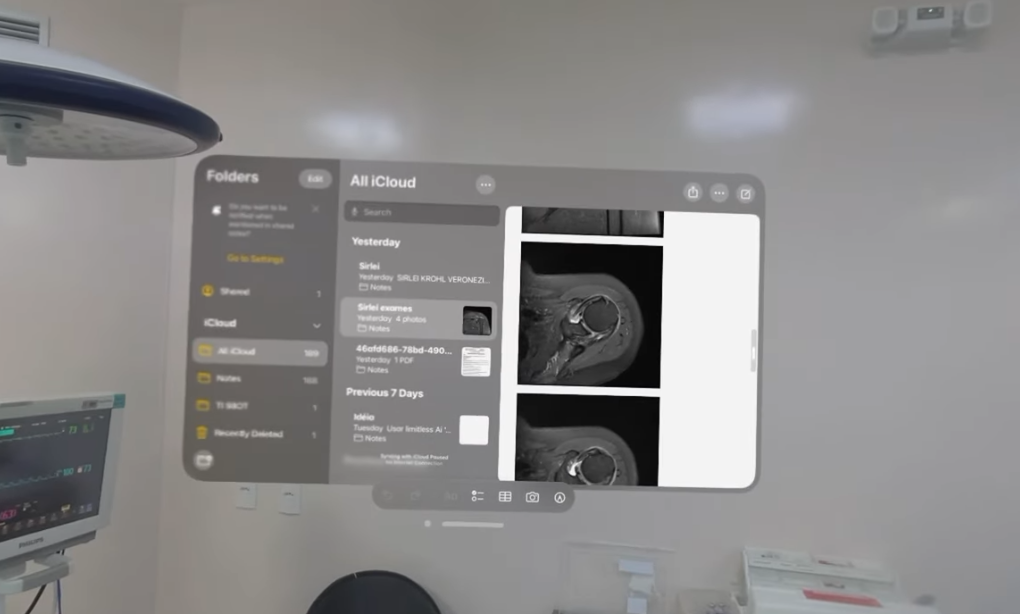Apple Vision Pro Surgery: A New Era of Surgical Assistance?

©️ ombroecotovelo / Youtube
Apple Vision Pro, the tech giant’s innovative augmented reality (AR) headset, is making waves beyond entertainment. Its potential in the medical field, particularly surgery, is sparking both excitement and cautious optimism.
This article explores the recent use of Apple Vision Pro in surgical procedures, examining its benefits, limitations, and the future it holds.

A Surgeon’s Perspective on Apple Vision Pro In surgery
Dr. Bruno B. Gobbato, a Brazilian orthopedic surgeon specializing in shoulder and elbow surgery, became one of the first to utilize Apple Vision Pro in the operating room. During a shoulder arthroscopy (a procedure using a camera), Dr. Gobbato employed the headset to:
- Magnify the surgical field: The camera feed was displayed on a virtual screen within his field of view, offering a larger, high-resolution view compared to traditional monitors.
- Access real-time patient information: 3D models of the shoulder joint and the patient’s medical records were readily available within the headset, eliminating the need to switch focus between screens or consult physical documents.

Dr. Gobbato highlighted the convenience and potential for improved accuracy with this setup. However, concerns regarding the device’s performance in low-light surgical environments remain, as acknowledged by Apple themselves.

Beyond Brazil: Early Applications and Potential Benefits
The use of Apple Vision Pro in Dr. Gobbato’s surgery wasn’t an isolated event. Earlier this year, a team at Cromwell Hospital in London used the headset during spinal surgery. Here, the focus was on:
- Superimposing virtual screens: This allowed crucial information to be readily available for the surgical team, potentially reducing human error. By having this information displayed directly in their field of view, surgeons and nurses can minimize the need to rely on memory or consult physical documents during critical moments of the procedure.
- Real-time surgical guidance: AI software platforms like eXeX can be integrated with the headset, guiding scrub nurses through each stage of the operation. This can be particularly valuable for complex procedures or for surgeons who are still in training. Imagine a virtual assistant within the headset prompting the scrub nurse for specific instruments at each step, reducing the risk of missing crucial tools or steps.

These early applications showcase the potential benefits of Apple Vision Pro in surgery:
- Improved visualization: Real-time access to patient data and 3D models can streamline workflow. But also allowing surgeons to focus more on the patient and the procedure itself.
- Increased efficiency: Easy access to information and potential AI guidance can minimize mistakes, potentially leading to improved patient outcomes.
- Reduced human error: The ability to share virtual screens with other surgeons could facilitate collaboration and consultations during surgery. But especially in geographically dispersed settings.
Looking Ahead with Apple Vision Pro surgery
While the possibilities of Apple Vision Pro in surgery are exciting, there are crucial aspects to consider:
- Limited availability: Currently, the device is only available in certain regions, limiting its wider adoption in healthcare.
- Cost: The high price point of the headset could be a barrier for many medical institutions.
- Safety concerns: Potential issues like latency and distortion require thorough investigation to ensure patient safety.
- Ethical considerations: The use of AR technology in surgery raises questions about data privacy and potential distractions for surgeons.
Further research and development are needed to address these concerns and optimize the technology for surgical applications. Nevertheless, Apple Vision Pro represents a significant step forward in surgical assistance. As the technology evolves, it has the potential to revolutionize how we approach surgery, leading to better outcomes for patients.
You might also like to read: Stay Young Forever: Reverse Aging is Now Possible


